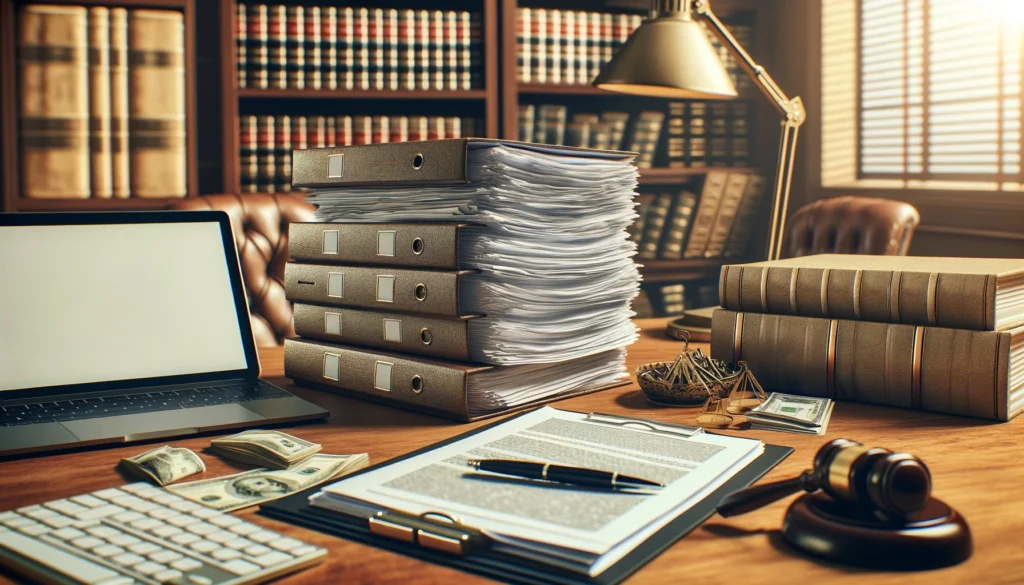
Liability: The Linchpin of Personal Injury Claims
Liability is the cornerstone of any personal injury claim. It is the legal responsibility for the harm suffered by the injured party (the plaintiff) and is the determining factor in whether or not they can receive compensation for their injuries and losses. Establishing liability requires proving that the defendant owed a duty of care to the plaintiff, breached that duty through negligence or intentional actions, and that this breach directly caused the plaintiff’s injuries.
The complexity of liability analysis can be daunting. It involves sifting through evidence such as accident reports, medical records, witness statements, and expert opinions, and applying legal principles to determine fault. This process can be time-consuming and requires meticulous attention to detail, especially given the often tight deadlines in personal injury cases.
This is where the power of AI, specifically ChatGPT, can become a game-changer. Its ability to quickly analyze large amounts of information and extract key details can significantly streamline the liability analysis process, saving valuable time and resources.
ChatGPT: Your Liability Analysis Assistant
ChatGPT’s strength lies in its ability to rapidly process and analyze information. In the context of personal injury claims, this translates to a powerful ally for tackling the intricate task of liability analysis. It offers several key advantages:
- Summarizing Evidence: Faced with a mountain of medical records, accident reports, and witness statements? ChatGPT can swiftly distill these documents into concise summaries, highlighting key facts relevant to liability.
- Legal Research: Unclear on the specific elements required to prove negligence in your jurisdiction? ChatGPT can research and summarize relevant case law and statutes, providing you with a foundational understanding of the legal principles at play.
- Identifying Strengths and Weaknesses: By analyzing evidence, ChatGPT can help pinpoint strengths in your client’s case and potential weaknesses in the opposing party’s arguments. This can guide your strategy and help you anticipate potential challenges.
- Generating Arguments: Need help brainstorming legal arguments to support your client’s claim of liability? ChatGPT can generate potential arguments and counterarguments based on the evidence and legal principles, giving you a head start on building your case.
Important Note:While ChatGPT is a valuable tool, it's essential to remember that it is not a substitute for legal expertise. Always carefully review and verify the information it provides, and consult with an attorney to ensure your analysis is accurate and legally sound.
To harness ChatGPT’s full potential for liability analysis, you need to master the art of crafting effective prompts. Let’s dive into specific prompt strategies that can streamline your workflow and uncover valuable insights.
Also read:
Prompt Engineering for Liability Analysis
To unlock ChatGPT’s potential for liability analysis, crafting precise and targeted prompts is crucial. Here are some illustrative prompts that legal professionals can use to extract information, assess evidence, and develop persuasive arguments:
Fact Gathering
- Prompt: “Analyze this police report [insert report] and extract the following information: 1) Date, time, and location of the accident; 2) Names and contact information of all parties and witnesses involved; 3) Description of the vehicles involved and any damage sustained; 4) Statements made by drivers and witnesses at the scene.”
- Purpose: This prompt helps quickly organize crucial details from accident reports, laying the foundation for further analysis.
Legal Research
- Prompt: “Research relevant case law and statutes in [jurisdiction] regarding liability for [specific type of accident, e.g., pedestrian accidents, product liability]. Summarize the key legal elements that must be proven to establish liability, including the standard of care, breach of duty, causation, and damages.”
- Purpose: Quickly access relevant legal principles, providing a framework for evaluating the specific facts of your case.
Evidence Evaluation
- Prompt: “Review these witness statements [insert statements] and assess their credibility. Identify any inconsistencies, biases, or gaps in their accounts of the accident.”
- Prompt: “Analyze these medical records [insert records] and summarize the plaintiff’s injuries, treatment, and prognosis. Assess the causal relationship between the accident and the plaintiff’s injuries.”
- Purpose: Evaluate the strength of the evidence and identify potential areas for cross-examination or dispute.
Argument Generation
- Prompt: “Based on the evidence in this case [summarize evidence], develop a list of potential arguments to support our client’s claim that the defendant was negligent and liable for the plaintiff’s injuries. Consider elements such as duty of care, breach of duty, causation, and foreseeability.”
- Prompt: “Generate potential counterarguments that the defendant might raise in response to our claim of negligence. Consider defenses such as comparative negligence, assumption of risk, or intervening/superseding cause.”
- Purpose: Brainstorm potential legal arguments and counterarguments, helping you build a stronger case and anticipate challenges.
Remember:ChatGPT is a tool, not a lawyer. Its analysis should always be reviewed and validated by a qualified legal professional. Use it to supplement, not replace, your own judgment and expertise.
Liability isn’t the only factor in personal injury claims. Let’s explore how ChatGPT can assist in assessing damages and exploring potential defenses.
Also read:
Beyond Liability: Exploring Damages and Defenses
While establishing liability is crucial, it’s only half the battle in personal injury claims. The other key component is assessing the full extent of damages suffered by the plaintiff. This involves calculating medical expenses, lost wages, pain and suffering, and other losses resulting from the accident.
ChatGPT can assist in this process by:
- Analyzing Medical Records: Input medical bills, treatment notes, and expert reports to generate a summary of the plaintiff’s injuries, treatment history, and estimated future medical needs.
- Calculating Lost Wages: Provide information on the plaintiff’s income, time missed from work, and potential future earning capacity. ChatGPT can then estimate lost wages and future income losses.
- Researching Damages Precedents: Ask ChatGPT to research similar cases in your jurisdiction to gauge potential awards for pain and suffering or other non-economic damages.
ChatGPT can also help explore potential defenses that the defendant might raise:
- Identifying Defenses: Input details about the accident and ask ChatGPT to suggest possible defenses the defendant might assert, such as comparative negligence, assumption of risk, or pre-existing conditions.
- Researching Case Law: Have ChatGPT research case law related to these defenses, providing summaries of relevant precedents and legal arguments.
- Generating Counterarguments: Prepare for these defenses by asking ChatGPT to generate potential counterarguments and evidence to refute them.
Important Note:While ChatGPT can provide valuable insights into damages and defenses, it's crucial to consult with financial experts and legal professionals to ensure accurate calculations and a comprehensive understanding of the legal landscape.
As with any AI tool, there are ethical considerations and limitations to keep in mind when using ChatGPT for liability analysis. Let’s delve into these important aspects…
Also read:
Ethical Considerations and the Importance of Human Judgment
While ChatGPT can be a valuable asset in liability analysis, it’s important to remember that it’s a tool, not a lawyer. Its insights and outputs should always be viewed as a starting point for further investigation and analysis, not as definitive legal conclusions.
Key Ethical Considerations:
- Overreliance on AI: Legal professionals must exercise their own judgment and expertise when assessing liability. ChatGPT can streamline the process, but it cannot replace the critical thinking and nuanced understanding required for making sound legal decisions.
- Data Bias: AI models are trained on existing data, which may reflect biases present in society or the legal system. It’s crucial to be aware of this potential bias and to critically evaluate ChatGPT’s output to ensure fairness and accuracy.
- Confidentiality: Personal injury cases often involve sensitive personal information. Legal professionals must take precautions to protect client confidentiality when using AI tools, ensuring that data is anonymized and securely handled.
The Human Element in Legal Practice:
ChatGPT can augment human capabilities, but it cannot replicate the empathy, intuition, and strategic thinking that experienced lawyers bring to the table. Legal professionals must remain actively engaged in the liability analysis process, using ChatGPT as a tool to enhance their own skills and knowledge, not to replace them. By combining the power of AI with human judgment, we can achieve a more efficient, accurate, and just legal system.


